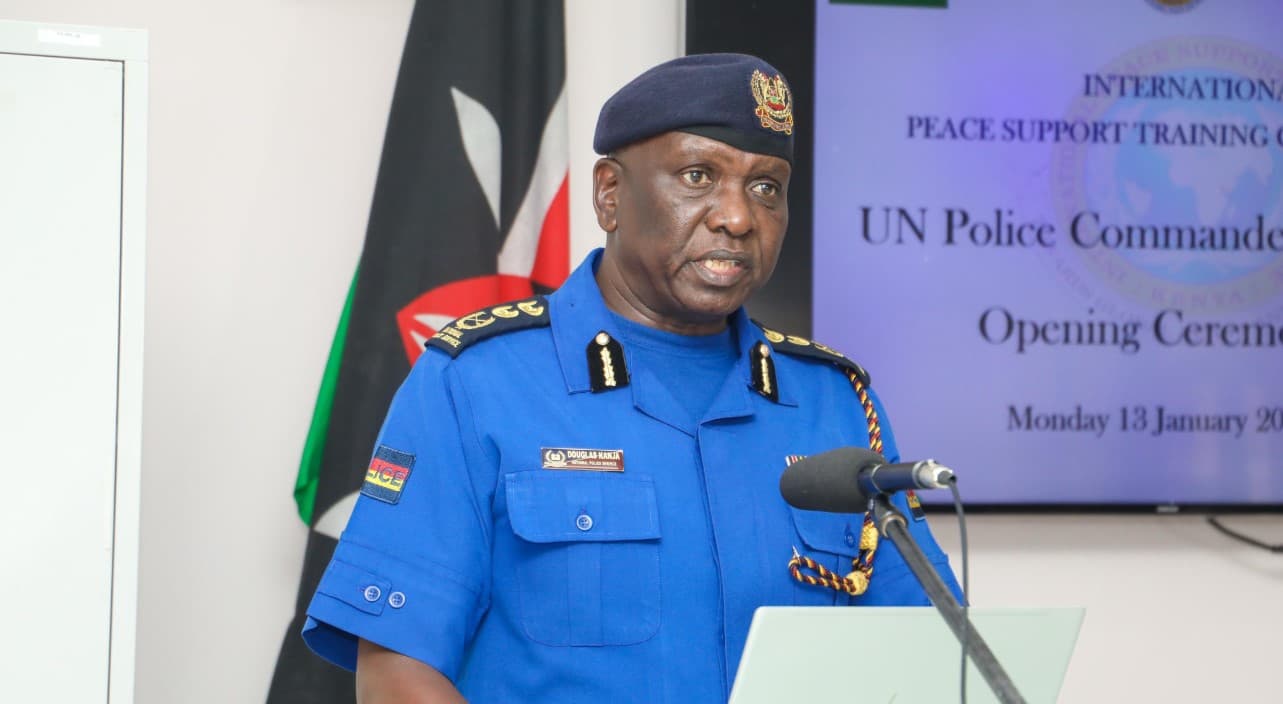We're loading the full news article for you. This includes the article content, images, author information, and related articles.
New Inspector General Douglas Kanja addresses police accountability following deadly protests that led to his predecessor's resignation, as oversight bodies demand justice for dozens killed and hundreds injured.

NAIROBI, EAT – In his first extensive media interview since taking command, Inspector General of Police Douglas Kanja on Friday, November 22, 2025, addressed the intense public scrutiny of the National Police Service (NPS), acknowledging the imperative for accountability after a series of violent and deadly crackdowns on civilian protests. Speaking to the Daily Nation on November 19, 2025, Kanja stated that any death must be investigated to its logical conclusion and the responsible officers punished, a declaration that comes in the wake of widespread condemnation of police conduct that led to the resignation of his predecessor, Japhet Koome, in July 2024.
The Inspector General’s remarks follow a turbulent period of youth-led demonstrations, primarily driven by the Gen-Z movement against the controversial Finance Bill 2024 and broader issues of corruption and police brutality. These protests, which began in June 2024 and continued in waves into 2025, saw an unprecedented level of public mobilisation and a tragically forceful response from security agencies.
According to a recent report by Amnesty International titled “This fear, everyone is feeling it: Tech-facilitated violence against young activists in Kenya,” the protests across 2024 and 2025 resulted in at least 128 deaths, over 83 enforced disappearances, and more than 3,000 arrests. The human rights organization detailed the use of excessive force by police, including the deployment of live ammunition against unarmed protestors. Similarly, the state-funded Kenya National Commission on Human Rights (KNCHR) documented dozens of fatalities and hundreds of injuries, corroborating claims of widespread police misconduct.
The Independent Policing Oversight Authority (IPOA) has launched extensive investigations into the conduct of officers during the demonstrations. In preliminary reports, IPOA confirmed monitoring operations across 24 counties and documented numerous violations, including the use of live bullets, tear gas, and water cannons, as well as officers concealing their identities by not displaying name tags or service numbers. IPOA Chairperson Anne Makori confirmed that the authority was investigating dozens of deaths and injuries and had forwarded initial files to the Director of Public Prosecutions (DPP). However, progress has been reportedly hampered by a lack of resources and full cooperation from some witnesses, according to IPOA CEO Elema Halake.
IG Douglas Kanja, who was appointed in an acting capacity on July 12, 2024, and officially sworn in on September 19, 2024, inherited a police service with its public trust severely eroded. His predecessor’s tenure was marked by a hardline stance, often terming planned protests illegal and warning of a full police response. The violent quelling of the June 25, 2024, protests, which saw demonstrators storm Parliament, proved to be a tipping point, leading to immense public pressure and Koome's eventual resignation.
Human rights groups and civil society organizations have emphasized that a change in leadership must be accompanied by systemic reform. Amnesty International has called on the Kenyan government to halt state-sponsored harassment of activists, investigate the unlawful killings and disappearances, and ensure victims are compensated. The challenge for IG Kanja is to translate his commitment to accountability into tangible action, including transparent investigations and prosecutions of officers found culpable of abuses. His performance will be measured by his ability to reform the service and rebuild the fractured relationship between the police and the Kenyan public they are sworn to protect.
As Kenya navigates ongoing political and economic tensions, the conduct of the National Police Service remains a critical issue for national stability and the protection of constitutional rights. The NPS recently issued statements on November 20, 2025, reminding organizers of planned demonstrations of the legal requirement to notify police in advance to ensure safety measures are in place, a procedural tone that some observers note is a shift from the more confrontational rhetoric of the past. The nation now watches to see if this signals a genuine move towards respecting the right to peaceful assembly or merely a change in communication strategy. The true test lies in the actions, not just the words, from Vigilance House.
Keep the conversation in one place—threads here stay linked to the story and in the forums.
Sign in to start a discussion
Start a conversation about this story and keep it linked here.
Other hot threads
E-sports and Gaming Community in Kenya
Active 9 months ago
The Role of Technology in Modern Agriculture (AgriTech)
Active 9 months ago
Popular Recreational Activities Across Counties
Active 9 months ago
Investing in Youth Sports Development Programs
Active 9 months ago